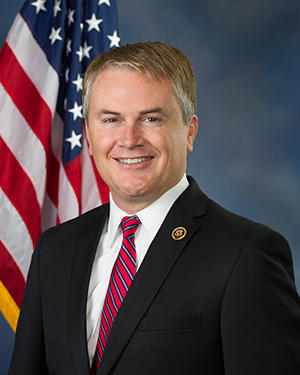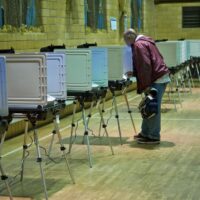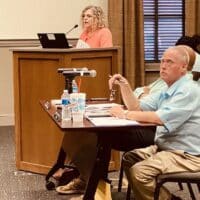During a town hall meeting July 30, Kentucky Congressman James Comer said he’s in favor of a second wave of stimulus funding geared toward recovering the economy and providing healthcare. However, Comer said the $3 trillion stimulus package proposed by House Speaker Nancy Pelosi was excessive.

Comer addressed the newest stimulus package. The package was voted on in Washington, D.C., July 30. Senate Majority Leader Mitch McConnell denied extending the additional $600 per week in unemployment benefits, which expires July 31. McConnell is pushing an additional $200 per week supplement.
The last stimulus package worth $3 trillion was excessive, according to Comer. He said it did not receive his vote. However, Comer said he was in support of the CARES Act.
“A couple of months ago, the House passed a $3 trillion package pushed by Nancy Pelosi that spent way too much money and contained items completely unrelated to the Coronavirus. I voted against that bill,” Comer said. “In the CARES Act, and I did support that bill, the money pertained for testing, for vaccines, for Medicare, and I think that was money that needed to be spent.”
Comer said many college students were not included in the last wave of stimulus checks. He called this an “unintended consequence,” and said the likely second wave of stimulus checks will not miss this specific group of the population.
“I know that there was an unintended consequence in the first bill with kids in college. There was an age gap there. It’s being resolved in the second bill,” Comer said.
According to Comer, legislation protecting businesses and schools from liability should be formed. He said this type of legislation will help aid the country back into normalcy.
“We can’t let this be an opportunity for trial lawyers. Every trial your firm advertised in the phone book could file suit against every business and school and university on the planet,” Comer said. “We will never get back to normal and that’s just not not something I want to see happen.”
Comer also announced his new position as the ranking member on the House Oversight Committee, a position he said he will use to protect the taxpayers from large and unnecessary government spending.
“I’m very excited about this new role and I’m focused on reforming government rooting out waste, fraud, and abuse,” Comer said. “This is something that I’ve been very active on the Oversight Committee.”
Comer last served under Congressman Jim Jordan on the House Oversight Committee. He will hold that position for the next six years.
“ I just got elected to that for six years, if I’m lucky enough to stay in Congress that long,” Comer said. “I will hopefully be making a difference. I’m trying to get the backs of the taxpayers with a government that I think is too big, spends too much money, and needs to be a whole lot more transparent and accountable to the taxpayer.”
Comer said his priority is focusing funds toward vaccines and healthcare. He also shared he is a strong proponent of getting kids back to in-person school.
“Even if it’s a combination of in-person learning and learning from home, I think it’s critical to the well being of our children to have at least some in person learning,” Comer said. “I have three kids, all in public schools and I can say with confidence they learned more in school than they probably did at home.”






